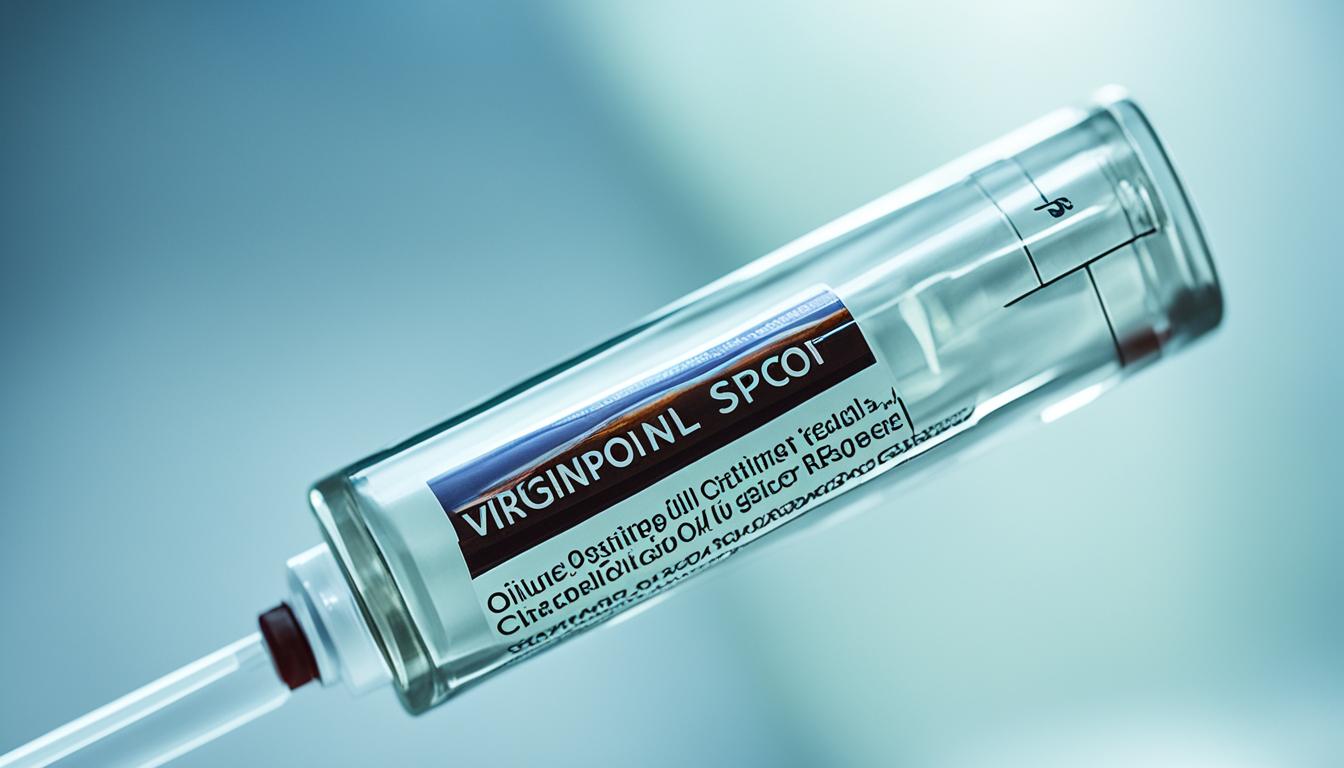Rick Simpson Oil (RSO) is getting attention as a possible cancer treatment. It comes from cannabis and has a lot of THC. THC is the main active part of marijuana. But, is there strong proof that it fights cancer?
Early studies suggest some marijuana chemicals might fight cancer. Yet, we don’t have clear proof that RSO directly treats cancer. THC in cannabis oils, like RSO, does help with cancer symptoms. It can reduce nausea, vomiting, pain, and improve appetite.
Research on THC shows it might stop tumors and kill cancer cells. It could do this without harming healthy cells. But, these ideas are mostly from animal and lab tests. More human studies are necessary to confirm these effects.
RSO is not a specific brand. You can get it in states where marijuana is legal. But because it has a lot of THC, it’s illegal in many places.
Symptoms from using marijuana can include dizziness and memory issues. RSO is very strong, with more than 90% THC. This could cause serious side effects like a fast heartbeat or feeling paranoid.
RSO might help with cancer. But, it shouldn’t be the only treatment you use. Experts say don’t stop your usual cancer treatments to try RSO. Always talk to your doctor first.
Key Takeaways:
- Rick Simpson Oil (RSO) is a cannabis-derived oil that is high in tetrahydrocannabinol (THC), the main psychoactive compound in marijuana.
- Early research suggests that some chemicals in marijuana have potential as cancer treatments, but there is limited direct evidence supporting RSO’s efficacy in curing cancer.
- THC in cannabis oils, including RSO, can help control symptoms associated with cancer such as nausea, vomiting, pain, and appetite improvement.
- Studies on THC and other cannabis compounds have shown potential in stopping tumor growth and killing cancer cells while sparing healthy cells, but more research is needed to confirm these findings in humans.
- RSO is not a branded product and is illegal in many places due to its high THC content. It is important to consult with healthcare professionals before using RSO or any cannabis products as a cancer treatment.
What is Rick Simpson Oil?
Rick Simpson Oil (RSO) is a cannabis oil with lots of THC. THC is the active part of marijuana that makes you feel high. It is named after Rick Simpson, who made it known. He used THC-packed oil to heal his skin cancer.
To make RSO, you wash cannabis buds with a solvent. Then, you boil it to remove the solvent, leaving the concentrated oil. Unlike many oils, RSO has a lot of THC. This is why people feel good when they use it.
You can make RSO at home. But, it’s illegal in places where marijuana is not allowed. In states where marijuana is legal, you can buy RSO in stores licensed to sell cannabis.
But, using RSO for cancer is not yet proven. Some early studies show it might stop tumors from growing. Yet, we don’t know for sure if it works for humans. So, it’s best to use it with other cancer treatments.
RSO might help with symptoms of other illnesses. It could help with epilepsy, chronic pain, and after chemotherapy. Some people say it also helps with nausea, vomiting, and increases appetite.
“I believe that Cannabis Oil and its related treatments have the potential to one day be much more beneficial than mainstream cancer treatments.” – Rick Simpson
But, RSO can cause some side effects. These may include dizziness and memory issues. The THC in RSO can make you feel high.
It is very important to know the laws about RSO in your area. RSO is illegal in many places. So, always check your local laws before using it.
In the end, we still need more research on RSO. It could be helpful for cancer, but we need to be sure. Always talk to your doctor and use it with other treatments.
Potential benefits of cannabis oils in cancer treatment
Certain cannabis oils with THC can help cancer patients. They may reduce nausea and vomiting, which are common during treatment. These oils work by influencing the body’s endocannabinoid system. This can make chemotherapy’s side effects easier to handle.
Appetite loss is a big problem for cancer patients undergoing treatment. THC in cannabis can boost appetite and food intake. This can help patients stay stronger and healthier.
Pain relief is vital for those with cancer. Cannabis oils have the potential to lessen pain. THC and other cannabinoids can affect how the body deals with pain signals. This can make patients feel more comfortable.
Research has shown that THC and other cannabis compounds can stop tumor growth in animal and lab studies. They may also kill off cancer cells while sparing healthy cells.
Cannabis oils, especially those with THC, might slow down tumors. Studies on animals and in labs have had good results. They show that cannabis might help with cancer treatment by attacking tumors. This makes it a potential addition to usual cancer care.
But, early study is going on, and more is needed. We need human trials to be sure about these oils’ benefits for cancer. Until we know more, patients should talk to their doctors before trying cannabis oils.
Thus, cannabis oils with THC seem useful for cancer symptoms like nausea, vomiting, and pain. They also could help with eating. And there’s hope they might fight tumors. Still, we await more research on the topic. Patients should work with their doctors if they’re interested in using these oils.
Lack of evidence for RSO as a cancer treatment
Many stories and few studies say Rick Simpson Oil (RSO) helps fight cancer. But, there’s not enough strong evidence yet. Some lab tests show that THC, a compound in RSO, might stop tumors and kill cancer cells. But, these results still need more tests in people.
Most stories about RSO helping with cancer don’t have all the needed information. Real proof, like from large clinical studies, is missing. Just because people share stories online, we can’t be sure RSO really works against cancer.
Studies found that a compound called CBD in cannabis might fight cancer the most. People usually take 10 to 800 milligrams each day. THC seems to work, too, but we know much less about it. Only a few studies talk about THC for cancer, with very low doses.
More and more people with cancer are interested in RSO and other cannabis oils. But, they should not replace standard cancer treatments that doctors know work. Right now, we can’t say for sure if RSO cures cancer directly.
Cancer patients must talk to their doctors about their options. Choosing treatments based on strong, proven facts is important. This gives them the best chance against cancer.
“The existing clinical data suggests that cannabis, including RSO, should not be used as a replacement for evidence-based, traditional cancer treatments.”
Doctors and cancer patients should work together. They can create a treatment plan that uses the best of what we know today. Following solid scientific advice is key to beating cancer.
Safety considerations of RSO
It is crucial to know safety tips when using RSO. This is because it has a lot of THC. THC can make you feel differently, like marijuana does.
RSO, like other cannabis items, has side effects. These include feeling dizzy, dry eyes, and having low blood pressure. You might also find it harder to remember things. Remember, too much THC can make you anxious or see things that aren’t there.
RSO users should not drive or use heavy machinery. The effects of RSO can make these actions dangerous.
Side effects of RSO
The side effects are much the same as with other cannabis. Feeling dizzy and dry eyes are common. However, you should also keep in mind that you might have low blood pressure or trouble remembering things.
Too much THC can make feelings of anxiety or paranoia worse. It can also make you feel panicky or see things that aren’t real.
If you find the side effects worrying, stop using RSO. It’s always a good idea to talk to a doctor.
Note: Always talk to a doctor before using RSO, especially if you’re ill or taking other medicines.
Legal implications of RSO
RSO’s THC content makes it illegal in many places. It’s very important to know the laws where you live about RSO.
The rules for RSO change from place to place. Make sure you check what’s allowed before using it.
Beware of the legal issues of having or making RSO in your area.
Be careful and know the laws when thinking about using RSO. Talk to your doctor for help with using it safely and legally.
Limited clinical evidence for RSO’s anticancer effects
Rick Simpson Oil (RSO) is being looked at for fighting cancer. However, there’s not much proof it works from clinical studies. Some early lab tests are exciting. They suggest RSO might help stop tumors from growing and make cancer cells die using THC.
But when it comes to human studies, we don’t have many. An example is a study on recurrent brain cancer. In this trial, using THC in the brain didn’t control tumors better or help folks live longer. There was also another study on a spray mixture of THC and CBD. It hinted at more time alive, but that wasn’t the main goal of the study.
There are only a handful of studies looking at cannabis, like RSO, for cancer. Right now, these studies mostly check how it helps with symptoms, not if it stops tumors from growing. What’s really needed are more studies over a long time. And they need to be very carefully done. Only then will we know if RSO and cannabis could really help in treating cancer.
Risks and legal considerations of RSO
RSO has grabbed attention because it might help with cancer. But using it has risks and legal issues you need to think about. RSO has a lot of THC, which is the key part that can make you feel high. It could affect your brain in the short and long term.
Studies show THC can make you temporarily less sharp and have physical effects like dry eyes and dizziness. It can also bring on headaches, make you sick to your stomach, change your mood, make you paranoid or anxious, and not mix well with certain meds, like antidepressants and painkillers.
The rules about RSO, and other cannabis products, change depending on where you are. In some places, it’s illegal to make or use RSO. But in areas where medical marijuana is legal, RSO might be okay. Knowing the law where you live is very important.
Making RSO at home can also be risky because it uses solvents. If you’re not careful, this method can be dangerous. There’s a risk of fires or explosions. This is why it’s important to follow correct procedures.
Because of the risks linked with RSO and its legal stand, talking to a doctor is a must if you’re thinking of using it. A doctor can check if RSO is safe for you and if it won’t cause issues with other meds. They can help you make a smart choice about using RSO or not.
Doctors need more proof before suggesting RSO for cancer or other health issues. While some people believe RSO can help, we don’t have strong proof yet. We need more studies to know for sure if cannabis products like RSO truly help treat cancer.
The importance of evidence-based cancer treatments
There’s growing interest in using cannabis, including RSO, for cancer. But, it’s key to focus on treatments well-researched and proven effective. At the moment, there’s not enough clinical proof that RSO or cannabis alone cures cancer. Patients must talk to their doctors before using them instead of standard treatments.
Traditional cancer treatments like chemotherapy and radiation have been widely tested. They are known to stop cancer cells from growing, shrink tumors, or clear cancer. These methods are safe and effective, based on solid scientific evidence.
R&D on weed, including RSO, for cancer care is just starting. Although lab tests seem promising, real human trials are scant. Remember, tales on social media aren’t as reliable as scientific studies.
Opting for tested cancer treatments means better chances of beating the disease. Doctors can mix these proven methods for an effective treatment plan suitable for each patient. With a doctor’s help, you can pick the best care for your cancer type and health status.
Treating cancer takes more than one kind of treatment. While cannabis might help with symptoms like pain, its role is to support, not replace, standard therapies. Always add cannabis into your treatment plan with your doctor’s advice.
Key Takeaways:
- Prioritize traditional, evidence-backed cancer treatments over new methods.
- There’s not enough evidence to say cannabis, including RSO, can cure cancer on its own.
- Talk to your healthcare team before trying RSO or any cannabis products for cancer.
- Treatments like chemotherapy have a solid scientific foundation for their use.
- Be cautious with personal stories; only rely on treatments that are backed by solid research.
- For the best chance at recovery, blend various treatments based on expert advice.
The need for further research on RSO and cannabis in cancer treatment
Many people are curious about Rick Simpson Oil (RSO) and cannabis for cancer treatment. But, we need more research to know if they really work and are safe. We have heard good things from people and seen some hopeful signs from early tests. Still, we must do more careful tests with people to be sure.
Today, there’s not a lot of research on RSO and cannabis for cancer. What we do have are small stories and a few looks at the facts. Some of these suggest that parts of cannabis, like CBD and THC, might help with symptoms and slow the growth of cancer cells in mice and test tubes. But, to really know if these things work for people, we need big, well-planned studies.
We need to focus our studies on people with cancer that has spread and didn’t get better with usual treatments. By looking closely at how well RSO and cannabis help in these cases, we can build real evidence. Strong proof can tell doctors how to really use these treatments with their patients.
Doing careful, fact-based research is key in treating cancer. While RSO and cannabis could be useful, they shouldn’t take the place of proven treatments. It’s crucial we keep studying so we understand the exact role these might play in helping people with cancer. This kind of information is what doctors need to choose the best care for their patients.




